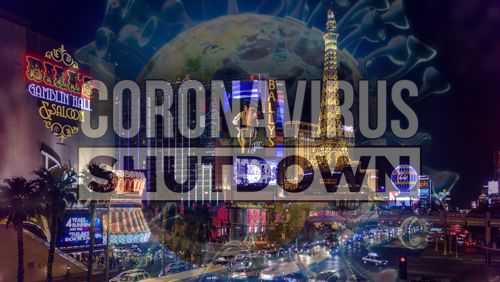Real estate investment trusts (REIT) had the perfect gig. Buy casinos, or the land beneath them, and then lease the venues back to the casino operators. Since gambling is an established business that could never go away, the business model means guaranteed income for decades, if not centuries, to come. At least, that’s what the REITs thought. The coronavirus has shown that nothing is immune from catastrophic losses, and, as entire states like Nevada and New Jersey shut down their casinos, the trusts are beginning to realize that the plan wasn’t as fool-proof as they thought. With casinos not seeing revenue coming in, there’s no way to cover expenses, and REITs are going to suffer, as well.
The first casino-based REIT was seen in 2012. That was when Penn National Gaming saw the creation of Gaming and Leisure Properties (GLP) as the first of what would become known as REITs. Since then, two others have been created, MGM Growth Properties (MGP) and Vici Properties. Based on the timeline of their creation, none has had to suffer through a recession, with the last major decline in economic activity having occurred about four years prior to GLP’s creation.
Fortunately for the REITs, they had foreseen, to a certain degree, what might transpire and learned lessons from previous recessions. The lease agreements are complicated vehicles that make it difficult for casinos to step away from their contractual obligations, since they typically cover multiple properties in a single agreement. As a result, there’s no simple way for an operator to abandon a lease, as it would impact several properties at the same time.
The co-founder of asset manager Fundamental Income, Alexi Panagiotakopoulos, told Casino.org, “They do have highly sophisticated lease structures, structured as cross-collateralized master leases (meaning all properties are under one lease, as opposed to multiple individual leases, essentially protecting the REIT from the tenant picking and choosing to close bad assets). Since the gaming REITs tenants are public, the REIT has a highly transparent tenant, with large corporate guarantees on what the industry calls ‘mission critical real estate.’”
This doesn’t mean that REITs are completely safe, however. As market trading shows, investors are now favoring casino companies that haven’t gotten involved with the trusts. All casino stocks are down, but those who haven’t entered into the game, such as Las Vegas Sands, haven’t lost nearly as much. LVS is down about 35%, while MGM Resorts, with several properties sold to REITs, is down 72%.
It’s not all doom and gloom, though, and investors have to look at the bigger picture. COVID-19 is going to pass, and things will return to normal. Lower prices right now mean more investment opportunities, and Panagiotakopoulos adds, “The 3 casinos REITs are trading at levels not seen by net lease REITs since the depths of 2009. As an investor today, you would be able to buy MGP, VICI and GLPI at an average equity cash flow multiple of 7.3x with an average dividend of 11.2%…to put that in perspective, the US 10-yr Treasury is trading at 0.885%.”